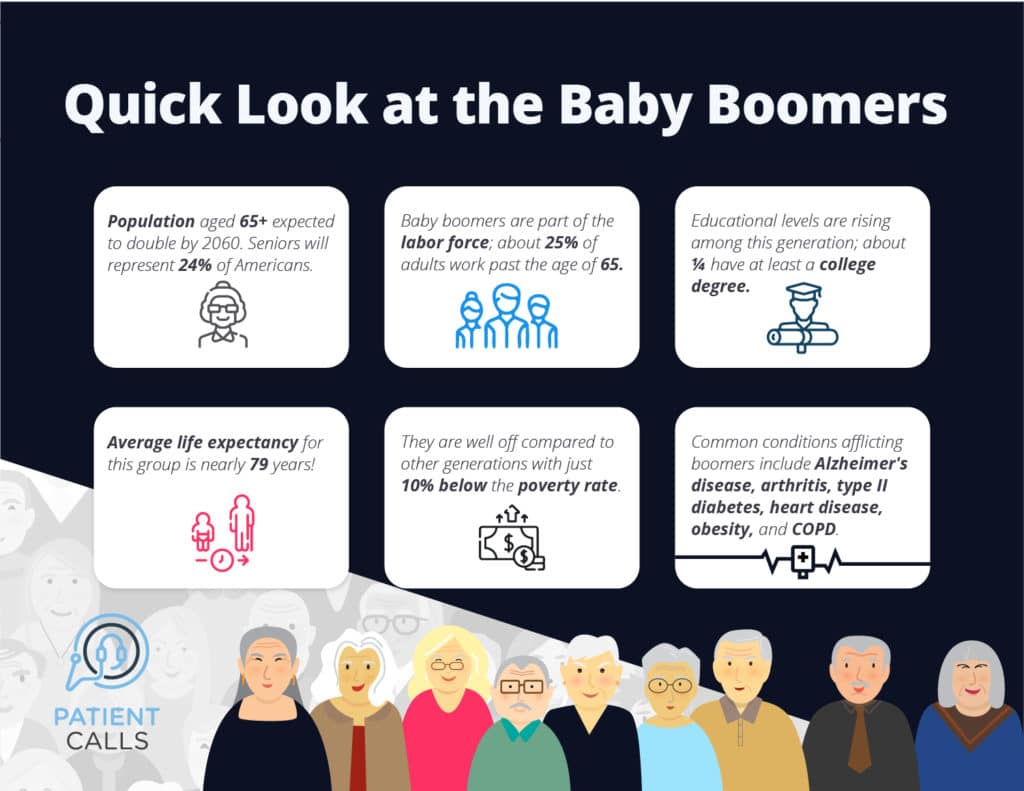
Baby Boomers: Navigating the Healthcare Landscape
Introduction
Baby boomers, born between 1946 and 1964, represent a significant demographic cohort that is rapidly aging. As they enter their golden years, their healthcare needs become increasingly complex and demanding. This article explores the unique healthcare challenges faced by baby boomers and provides insights into strategies for navigating the healthcare system effectively.
Chronic Conditions and Multimorbidity
Baby boomers are more likely to experience chronic conditions such as heart disease, cancer, diabetes, and arthritis. Multimorbidity, the presence of two or more chronic conditions, is common among this population. These conditions often interact with each other, making diagnosis and treatment more challenging.
Managing Medications
Baby boomers often take multiple medications for their chronic conditions. Managing these medications can be complex, especially if they interact with each other or have side effects. Polypharmacy, the use of five or more medications, is a growing concern among this population.
Mental Health
Mental health issues, such as depression and anxiety, are also prevalent among baby boomers. These conditions can significantly impact their overall health and well-being.
Financial Considerations
Healthcare costs can be a significant financial burden for baby boomers. Many are on fixed incomes and may have limited access to affordable health insurance. Out-of-pocket expenses, such as deductibles and co-pays, can add up quickly.
Navigating the Healthcare System
Navigating the healthcare system can be overwhelming for baby boomers. The complexity of insurance plans, the abundance of healthcare providers, and the constant changes in the industry can make it difficult to find the right care at the right price.
Strategies for Success
To effectively navigate the healthcare landscape, baby boomers should consider the following strategies:
1. Be Proactive:
- Schedule regular checkups and screenings to detect and manage health issues early on.
- Stay informed about your health conditions and treatment options.
- Advocate for yourself and ask questions about your care.
2. Manage Medications Wisely:
- Work closely with your doctor and pharmacist to manage your medications effectively.
- Use a pill organizer or medication reminder app to stay on track.
- Be aware of potential drug interactions and side effects.
3. Address Mental Health:
- Don’t ignore mental health concerns. Seek professional help if you experience symptoms of depression or anxiety.
- Engage in activities that promote mental well-being, such as exercise, meditation, and social interaction.
4. Plan Financially:
- Explore affordable health insurance options, such as Medicare and supplemental plans.
- Consider long-term care insurance to cover potential future expenses.
- Save for healthcare costs by setting aside funds in a health savings account (HSA) or other investment vehicle.
5. Build a Healthcare Team:
- Establish a relationship with a primary care physician who can coordinate your care.
- Consider consulting with specialists for specific health conditions.
- Involve family members or friends as support persons to assist with appointments and decision-making.
6. Utilize Technology:
- Use online resources to research health conditions and find healthcare providers.
- Use apps to track medications, appointments, and health data.
- Consider telehealth services for convenient access to care.
7. Stay Informed:
- Keep up with the latest healthcare news and research.
- Attend health education classes and workshops.
- Join support groups for specific health conditions.
8. Advocate for Yourself:
- Don’t be afraid to ask questions and express your concerns to healthcare providers.
- Seek second opinions if you are not satisfied with your diagnosis or treatment plan.
- Participate in decision-making about your care.
Conclusion
Baby boomers face unique healthcare challenges as they age. By being proactive, managing medications wisely, addressing mental health, planning financially, building a healthcare team, utilizing technology, staying informed, and advocating for themselves, they can navigate the healthcare system effectively and maintain their health and well-being throughout their golden years.
Additional Tips for Baby Boomers
- Consider preventive care measures, such as regular exercise, a healthy diet, and stress management.
- Get vaccinated against common diseases, such as influenza and pneumonia.
- Stay active and engaged in social activities to maintain cognitive and physical function.
- Seek support from family, friends, or support groups to cope with health challenges.
- Remember that you are not alone. Many resources and services are available to help you navigate the healthcare system and live a healthy and fulfilling life.
